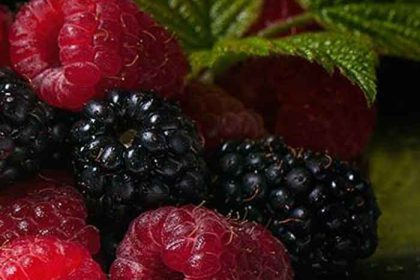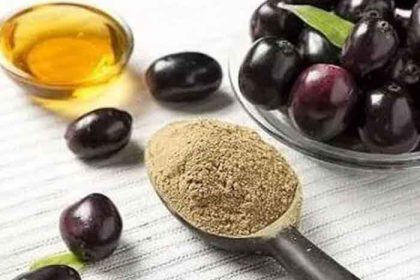Benefits of raw onion for sexually and eyes and skin and lungs
Raw onion benefits
Benefits of raw onion for sexually and eyes and skin and lungs on Nichooli site. We hope this article will be of interest to you.
The text discusses the benefits of consuming onions for men, women, skin, eyes, lungs, and hair. Some of the benefits of onion for men include improved sexual performance, reduced cancer risk, improved heart health, reduced inflammation, and increased body resistance. For women, benefits include reduced inflammation, prevention of heart diseases, strengthened immune system, hormone regulation, and prevention of cancer. Onion benefits for the skin include anti-inflammatory properties, antibacterial properties, antioxidant compounds, improved collagen production, and skin lightening. Onion can be useful for eye health due to its vitamins and natural antioxidants. Onion benefits for lung health include strengthening the immune system, reducing lung inflammation, preventing lung cancer, reducing asthma symptoms, and improving lung function. Lastly, eating raw onions benefits hair as it contains sulfur which helps hair growth and strengthens the hair structure, keratin that helps strengthen hair roots and prevents hair loss, and vitamin C which helps strengthen the structure of hair and prevents brittle hair.
Onion benefits
Onions are a commonly used vegetable in many cuisines around the world and are known for their unique flavor and aroma. They offer a variety of health benefits due to their nutritional content and active compounds. Here are some of the potential benefits of onions:
Nutrient-Rich: Onions are a good source of essential nutrients, including vitamin C, vitamin B6, folate, potassium, and dietary fiber. These nutrients are important for overall health and well-being.
Antioxidant Properties: Onions contain antioxidants, such as quercetin and anthocyanins, which help combat harmful free radicals in the body. Antioxidants can reduce oxidative stress and may play a role in reducing the risk of chronic diseases.
Heart Health: Onions may contribute to heart health by helping to lower blood pressure and reduce the risk of heart disease. The antioxidants and sulfur compounds in onions may have beneficial effects on blood vessels and cholesterol levels.
Anti-Inflammatory: Some compounds in onions have anti-inflammatory properties that may help reduce inflammation in the body. Chronic inflammation is associated with various diseases, including heart disease and certain cancers.
Immune Support: The vitamin C content in onions can boost the immune system and help the body fight off infections. It may also help reduce the duration and severity of colds and other respiratory illnesses.
Digestive Health: Onions contain dietary fiber, which can promote healthy digestion by preventing constipation and supporting a balanced gut microbiome.
Potential Cancer Protection: Some studies suggest that regular consumption of onions may be associated with a reduced risk of certain types of cancer, particularly stomach and colorectal cancers. The antioxidants and sulfur compounds in onions are believed to play a role in this protective effect.
Blood Sugar Control: Onions may help regulate blood sugar levels in individuals with diabetes due to their fiber content and potential ability to improve insulin sensitivity.
Skin Health: The antioxidants in onions may contribute to healthy skin by reducing oxidative damage and supporting collagen production.
Anti-Microbial: Onions have natural antimicrobial properties that can help inhibit the growth of harmful bacteria and pathogens, potentially aiding in preventing foodborne illnesses.
Onion side effect
Onions are a widely consumed vegetable and are generally considered safe for most people when eaten in moderation as part of a balanced diet. However, some individuals may experience side effects or adverse reactions to onions, particularly when consumed in excessive amounts or in specific circumstances. Here are some potential side effects and considerations related to onions:
Digestive Discomfort: Onions contain dietary fiber and natural sugars that can be fermentable and may cause digestive discomfort in some people. This can include gas, bloating, and flatulence. Cooking onions can help reduce their fermentability and make them easier to digest.
Allergic Reactions: Some individuals may be allergic to onions, experiencing symptoms such as skin rash, itching, swelling, or respiratory distress. Allergic reactions to onions are relatively rare but can be serious in sensitive individuals.
Heartburn and Acid Reflux: Onions are known to relax the lower esophageal sphincter, which can lead to acid reflux or heartburn in some people, especially when consumed in large quantities or for those with pre-existing gastrointestinal conditions.
Gastroesophageal Reflux Disease (GERD): Onions may exacerbate symptoms in individuals with GERD, a chronic condition characterized by acid reflux into the esophagus. The sulfur compounds in onions can potentially worsen symptoms.
Odor and Bad Breath: Onions contain sulfur compounds that can lead to strong odors in the breath and sweat. This effect can be bothersome to some people.
Interaction with Medications: Onions may interact with certain medications. For example, they can interfere with the anticoagulant effects of blood-thinning drugs like warfarin. If you are taking medication, consult your healthcare provider about potential interactions.
Skin Irritation: Handling raw onions can cause skin irritation or dermatitis in some individuals. Wearing gloves or washing hands thoroughly after handling onions can help prevent this.
Onion benefits for men
Onions offer a variety of health benefits that are not specific to any gender, so both men and women can enjoy these advantages. Here are some of the potential benefits of onions that are relevant to men’s health:
Heart Health: Onions contain antioxidants and sulfur compounds that may help improve heart health. They can help lower blood pressure, reduce cholesterol levels, and improve blood vessel function. These benefits are important for both men and women to reduce the risk of heart disease.
Prostate Health: Some research suggests that onions, particularly those rich in quercetin, may have a protective effect on the prostate gland. Regular consumption of onions may be associated with a reduced risk of prostate cancer, which is a concern for men.
Immune Support: Onions are a good source of vitamin C, which supports the immune system. A strong immune system is essential for overall health and can help the body defend against infections and illnesses.
Anti-Inflammatory Properties: Onions contain compounds with anti-inflammatory properties that may help reduce inflammation in the body. Chronic inflammation is linked to various health issues, including heart disease and certain cancers, making this benefit relevant for both genders.
Antioxidant Protection: The antioxidants found in onions can help combat oxidative stress and reduce the risk of chronic diseases, including those that affect men, such as cardiovascular disease and certain cancers.
Digestive Health: Onions provide dietary fiber, which can promote healthy digestion. A well-functioning digestive system is important for nutrient absorption and overall well-being.
Athletic Performance: Some studies suggest that quercetin, a flavonoid found in onions, may improve exercise performance and recovery by enhancing endurance and reducing muscle fatigue. This benefit can be particularly relevant to active men.
Weight Management: Onions are low in calories and can add flavor and bulk to meals without significantly increasing calorie intake. Incorporating onions into a weight-conscious diet can be helpful for men aiming to manage their weight.
Onion benefits for women
Onions offer a range of health benefits specifically beneficial for women. Here are some of the key advantages:
Bone Health: Onions are rich in antioxidants and other compounds that may help reduce oxidative stress, improving bone density and thus potentially reducing the risk of osteoporosis, which is a common concern for women, especially post-menopause.
Heart Health: The anti-inflammatory properties of onions can contribute to reducing blood pressure and improving overall heart health. This is crucial as heart disease is a leading cause of death among women.
Anti-Cancer Properties: Certain studies suggest that onions contain compounds like quercetin and sulfur compounds that may help reduce the risk of several types of cancer, including ovarian and breast cancer.
Skin Health: The vitamins and antioxidants present in onions can contribute to healthy skin. Their anti-inflammatory properties may also help with conditions like acne or skin inflammation.
Digestive Health: Onions are a good source of fiber, which is essential for healthy digestion. This can be particularly beneficial for women who may experience digestive issues due to hormonal fluctuations.
Immune System Boost: The high vitamin C content and other immune-boosting compounds in onions can help strengthen the immune system.
Blood Sugar Regulation: Onions have properties that may assist in regulating blood sugar levels, which is beneficial for women with or at risk of diabetes.
Pregnancy Benefits: While not specific to onions alone, they do contribute essential nutrients like folic acid which is crucial during pregnancy.
Onion benefits for skin
Onions offer several benefits for skin health, making them a valuable addition to both dietary and topical skincare routines. Here are some of the key benefits of onions for skin:
Anti-Aging: Onions are rich in vitamins A, C, and E, which are powerful antioxidants. These antioxidants help protect the skin from premature aging caused by free radicals and can aid in reducing the appearance of wrinkles.
Skin Brightening: The vitamin C in onions also helps in brightening the skin. It can aid in reducing dark spots and hyperpigmentation, leading to a more even skin tone.
Acne Treatment: Due to their antibacterial properties, onions can be effective in treating acne. They help reduce inflammation and fight the bacteria that cause acne.
Scar Healing: Onion extract is known for its role in reducing the appearance of scars. This is due to its ability to enhance collagen production, which is crucial for healthy skin and scar healing.
Anti-Inflammatory Properties: Onions contain compounds like quercetin, which have anti-inflammatory effects. This can be beneficial in treating conditions like acne, eczema, or other inflammatory skin conditions.
Skin Detoxification: The sulfur in onions has detoxifying properties. It helps in removing toxins from the skin, which can contribute to a healthier complexion.
Moisturization: Although not as potent as other moisturizing ingredients, onions do contain compounds that help in hydrating the skin, making it softer and smoother.
Treating Infections: The antimicrobial properties of onions can help in treating skin infections and promote faster healing of wounds.
Onion benefits for eyes
Onions, while often associated with causing tears, actually offer several indirect benefits for eye health, primarily due to their nutrient content:
Rich in Vitamin C: Onions are a good source of Vitamin C, an antioxidant that is crucial for maintaining eye health. Vitamin C helps in the formation of collagen which is a key component of the cornea and sclera of the eyes.
Contain Quercetin: Onions are rich in quercetin, a powerful antioxidant that can help protect against cataract formation. Quercetin has been shown to protect the lens of the eye from oxidative damage and help prevent the formation of cataracts.
Sulfur Compounds: The sulfur in onions aids in the formation of glutathione, an important antioxidant that can help protect the lens of the eye. Higher levels of glutathione have been linked to a reduced risk of some eye conditions, like glaucoma and macular degeneration.
Anti-Inflammatory Properties: The anti-inflammatory properties of onions may help in reducing irritation or redness in the eyes, especially those caused by allergies or infections.
Blood Sugar Regulation: Since diabetes can lead to several eye issues, including diabetic retinopathy, onions’ ability to help regulate blood sugar levels indirectly supports eye health.
Improved Circulation: Onions can help improve circulation, which is beneficial for maintaining optimal eye health. Proper blood flow ensures that enough oxygen and nutrients reach the eyes, which is crucial for their function.
Onion benefits for lungs
Onions offer several potential benefits for lung health, largely due to their rich nutrient profile and anti-inflammatory properties. Here’s how onions can be beneficial for the lungs:
Anti-Inflammatory Properties: Onions contain quercetin and other flavonoids, which have anti-inflammatory effects. These compounds can help reduce inflammation in the respiratory system, beneficial for conditions like asthma or allergic reactions.
Antioxidant Effects: The high levels of antioxidants in onions, such as vitamin C, sulfur compounds, and quercetin, help combat oxidative stress. Oxidative stress can damage lung tissue and exacerbate respiratory conditions.
Expectorant Properties: Onions have been traditionally used as an expectorant. They can help in loosening mucus in the chest, making it easier to cough up. This property can be particularly helpful for people suffering from colds, coughs, or minor respiratory infections.
Immune System Boosting: Onions can strengthen the immune system due to their vitamin C and other phytochemicals. A stronger immune system is better at combating infections and diseases that can affect the lungs.
Anti-bacterial and Anti-viral Effects: Certain compounds in onions, like allicin, have anti-bacterial and anti-viral properties. These can help fight infections that might impact the lungs.
Supporting Cardiovascular Health: Onions help in improving cardiovascular health, which is indirectly beneficial for the lungs. Better heart function ensures efficient oxygen transport and blood flow, vital for lung function.
Reducing the Risk of Lung Disorders: Some studies suggest that the consumption of onions may reduce the risk of certain lung conditions, such as asthma and chronic obstructive pulmonary disease (COPD), due to their anti-inflammatory and antioxidant properties.
Eating raw onion benefits hair
Eating raw onions can offer several benefits for hair health due to their rich nutritional content. Here are some of the key advantages:
Promotes Hair Growth: Onions are high in sulfur, a mineral essential for the regeneration of hair follicles. Sulfur is known for its ability to stimulate blood circulation, promoting hair growth and preventing hair loss.
Strengthens Hair: The sulfur in onions also contributes to strengthening hair, making it less prone to breakage and thinning.
Antibacterial Properties: Onions have antibacterial properties that can help combat scalp infections, a common cause of hair loss.
Antioxidant Effects: Onions are rich in antioxidants, such as quercetin, which protect the hair and scalp from oxidative stress. Oxidative stress can lead to premature graying and weakening of hair.
Maintains Scalp Health: The anti-inflammatory properties of onions can help in reducing issues like dandruff and scalp irritations, contributing to a healthier scalp environment for hair growth.
Improves Blood Circulation: Consuming raw onions can improve overall blood circulation, including to the scalp. Increased blood flow to the scalp ensures better nourishment and oxygen supply to hair follicles, supporting hair health.
Rich in Nutrients: Onions are a good source of various vitamins and minerals like Vitamin C, B vitamins, and others, which are essential for maintaining healthy hair.
Benefits of onions sexually for woman
1. Blood Flow Enhancement: Improved blood circulation, as facilitated by onion consumption, can enhance sexual arousal in women by increasing blood flow to the genital area.
2. Libido Boost: The natural compounds in onions are believed to have aphrodisiac properties that might help in boosting libido.
3. Hormonal Balance: Onions can play a role in balancing hormones. This balance is important for sexual health, mood regulation, and overall well-being.
4. Stress Management: The vitamins and minerals in onions can aid in stress management. Reduced stress levels can have a positive impact on sexual desire and overall sexual health.
5. Reproductive Health: Onions’ antioxidant properties may contribute to overall reproductive health, which is vital for a healthy sex life.
6. Menstrual Health: Regular consumption of onions may help in managing symptoms associated with menstruation, which can indirectly affect sexual well-being.
7. Cardiovascular Health: As with men, good heart health is essential for sexual function in women, and onions contribute to cardiovascular wellness.
8. Immune System Support: A strong immune system, bolstered by the nutrients in onions, can lead to overall health, indirectly supporting a healthy sex life.
Onion benefits for men’s sexually
1. Cardiovascular Health: Onions are known for their heart-healthy properties. Good cardiovascular health is crucial for sexual function, as it ensures proper blood flow, a key component in achieving and maintaining erections.
2. Blood Circulation: The flavonoids and sulfur compounds in onions can enhance blood circulation. Improved blood flow to the genital area is essential for erectile function.
3. Testosterone Levels: Certain studies suggest that onions may help in boosting testosterone levels. Testosterone plays a significant role in male libido and sexual performance.
4. Antioxidant Effects: Onions are rich in antioxidants like quercetin. These can help protect the reproductive organs from oxidative stress, which is beneficial for sexual health.
5. Prostate Health: Regular consumption of onions may contribute to prostate health, which is important for sexual function and overall reproductive health in men.
6. Libido Enhancement: Some believe that onions have aphrodisiac properties, potentially enhancing libido.
7. Stress Reduction: Onions contain nutrients that can help in managing stress and anxiety, factors that can affect sexual performance.
8. Sperm Health: Onions are rich in nutrients that can improve sperm count and motility, beneficial for male fertility.
How to use onion for erectile dysfunction?
Onions are thought to have several health benefits due to their rich nutritional profile, and some believe they may help with issues like erectile dysfunction (ED). However, it’s important to note that while onions can be part of a healthy diet, they are not a proven or primary treatment for ED. Here’s how onions might theoretically help:
Improving Heart Health: Onions are good for cardiovascular health due to their antioxidant and anti-inflammatory properties. Since ED is often linked to vascular health, anything that improves heart function can potentially have a positive impact on erectile function.
Blood Flow Enhancement: The flavonoids and sulfur compounds in onions can help in blood thinning and improve blood circulation. Better blood flow, especially to the pelvic region, is crucial for erectile function.
Reducing Blood Pressure: High blood pressure can contribute to ED. Onions, being natural blood thinners, can assist in lowering blood pressure, indirectly benefiting erectile health.
Boosting Testosterone Levels: Some studies suggest that onions may help increase levels of testosterone in the body. Testosterone plays a crucial role in male sexual health and libido.
Antioxidant Properties: Onions are rich in antioxidants like quercetin, which can help combat oxidative stress — a factor that can contribute to ED.
To incorporate onions for their potential benefits, you can include them in your regular diet. Both raw and cooked onions can be beneficial, though raw onions might retain more of their nutrients. However, relying solely on onions for treating ED is not advisable. ED can be a complex issue with various underlying causes, including physical and psychological factors.
If you’re experiencing ED, it’s important to consult a healthcare professional. They can provide a proper diagnosis and suggest effective treatments, which may include lifestyle changes, medication, therapy, or other interventions. Eating a healthy, balanced diet, staying physically active, reducing stress, and avoiding smoking and excessive alcohol are general lifestyle measures that can support erectile function and overall health.
Can an onion increase sperm?
Onions are believed to have some potential benefits for male fertility, including possibly impacting sperm health and count. This is primarily due to their rich nutritional content and specific compounds. Here’s how onions might theoretically help in improving sperm quality and quantity:
Antioxidant Properties: Onions are rich in antioxidants like quercetin and sulfur compounds. These antioxidants can protect sperm from oxidative stress, which can damage sperm DNA and affect its quality.
Sulfur Compounds: Sulfur in onions is essential for the production of sperm. It helps in the formation of sperm and can improve their motility and viability.
Zinc Content: Onions, especially red onions, contain zinc, a mineral important for testosterone production and sperm health.
Anti-Inflammatory Effects: The anti-inflammatory properties of onions can positively affect overall health, including reproductive health. Chronic inflammation can impair fertility, and reducing it may help improve sperm function.
Improving Blood Circulation: Flavonoids in onions can improve blood circulation, which is beneficial not just for erectile function but also for overall reproductive health.
Hormonal Balance: There is some evidence suggesting that onions can influence hormone levels, including testosterone, which is crucial for sperm production.
Disadvantages of eating raw onion
Raw onions can be problematic for some people with specific problems such as indigestion, stomach cramps, redness, and itching due to their active ingredients such as allicin, flavonoids, and simple sugar. Also, some people may have onion, bloating, or flu symptoms such as headaches, problems with breathing, and itching in the hands and feet. In cases where the onion is consumed in size and amount, along with other foods, there is no problem for most people. However, because raw onions may be problematic for some people, it is not recommended for some people to consume raw onions. The best way to consume onions is to cook them fried, semi-cooked, or cooked.
Onion juice for eyesight
Using onion juice for eyesight is not a recommended practice. While onions have nutritional benefits when consumed as part of a diet, applying onion juice directly to the eyes can be harmful and cause several issues:
Irritation and Burning: Onion juice is highly irritating to the eyes. It can cause burning, redness, and severe discomfort.
Tear Production: The compounds in onions that make your eyes tear up when cutting them can be even more intense when applied directly to the eyes.
Risk of Infection: Applying raw onion juice to the eyes could introduce bacteria or other pathogens, potentially leading to infections.
Corneal Damage: The acidic nature of onion juice can damage the sensitive tissues of the cornea and conjunctiva.
Raw onion benefits
Raw onions, as one of the vegetables and foods used in various foods, have many advantages to our body’s health. Some of the benefits of raw onion are:
Anti -Inflammation: Raw onion contains compounds that can reduce inflammation and increase the treatment of diseases such as arthritis, asthma, and gastrointestinal inflammation.
Reduce the risk of heart disease: Consuming raw onions can reduce bad cholesterol and reduce the risk of heart disease.
Strengthening the immune system: Raw onion contains vitamin C and antioxidants such as quercetin that help strengthen the immune system.
Reduce Cancer Risk: Raw onion contains compounds that can reduce the risk of some cancers such as colon cancer.
Gastrointestinal Improvement: Raw onion has high dietary fiber that can help improve digestive function and reduce gastrointestinal problems such as constipation.
Improvement of brain function: Consuming raw onions can help improve brain function and memory.
Reduce the risk of infections: Raw onion contains compounds that can help reduce the risk of infections such as colds.
Best time to eat onion
Onions can be consumed at any time and at any time of the day. However, in some cooking methods, it is best to consume onions at certain times. For example, in some vegetable foods such as work, the onion is fried at the beginning of the baking process, and then adds other ingredients. Also, in some foods such as salads, it is best to soak the onion before consuming it and then dry it. In general, the best time to eat onions as a consumer depends on the type of food used and in what form. Also, to improve the digestion of the onion, it can be combined with other foods such as meat, vegetables, or legumes.
Rubbing onion on eyes
Onion is a rich ingredient of compounds that can be helpful in improving the health of the eyes. Below are some benefits of onion for eye health: Visual Improvement: Onions contain antioxidants that can help improve vision. Because of these antioxidants, onions can prevent damage to eye cells and improve vision. Reduce the risk of eye diseases: Consuming onions can reduce the risk of eye diseases such as catheter and macular conversion disease by reducing inflammation and cell secretions in the eyes. Reduce the risk of eye infection: Onions include compounds that can help fight eye infections.
What are the benefits of drinking onion water?
Given the knowledge available, onion juice is a traditional treatment, but more scientific research is needed to make it more examined. In general, onion juice may have anti-inflammatory, antibacterial, antiviral, and antifungal properties. It may also act as a powerful antioxidant that can protect body cells from oxidative damage. Some people believe that drinking onion juice can help treat some of the health problems related to the gastrointestinal tract, such as indigestion and constipation, but due to the lack of careful scientific studies in this area, these claims should be cautiously made as personal opinions. Also, it should be noted that drinking onion juice may cause bad breathing and produce an unpleasant odor from the mouth. So before consulting onion juice, it is best to consult your doctor.
Onion benefits for cough
Onions have anti-cough properties and are used as a natural treatment to reduce cough. Below are the benefits of onion for cough:
Anti -Inflammation: Onions can act as a natural anti-inflammatory and help reduce cough by reducing inflammation of the lung valves.
Antibacterial: Onions have antibacterial properties that can control the bacteria that infect the airline. This improves the infection faster.
Moisturizing: The onion is a strong moisturizer and can help with reduced dryness in the chest. This causes less itching and cough.
Respiratory Anti -Inflammation: Onion can act as an anti-inflammatory respiratory tract and help reduce cough by reducing inflammation in the nose, throat, and lungs.
Visibility: Onions are used to reduce cough as a suitable choice for nose and lung ventilation.
However, it is best to consult your doctor before using onions to reduce cough, and if you or your baby have specific symptoms, you should see a specialist doctor.
Onion benefits for heart
Onions are highly beneficial for heart health due to their unique combination of anti-inflammatory, antioxidant, and anti-cholesterol properties. Here’s how they contribute to cardiovascular wellness:
Rich in Antioxidants: Onions are packed with antioxidants, such as quercetin, which protect the heart and blood vessels from oxidative stress and inflammation. Oxidative stress can lead to heart disease by damaging blood vessels and causing plaque buildup.
Anti-Inflammatory Properties: Chronic inflammation is a risk factor for heart disease. Onions contain compounds that help reduce inflammation, thereby potentially lowering the risk of heart disease.
Lowering Cholesterol Levels: Some studies suggest that onions can help reduce high levels of LDL (low-density lipoprotein) cholesterol, often referred to as “bad” cholesterol. High LDL cholesterol is a significant risk factor for heart disease.
Blood Pressure Regulation: Onions contain sulfur compounds that have been found to naturally thin the blood, as well as flavonoids that can help lower blood pressure. Managing blood pressure is crucial for preventing heart attacks and strokes.
Improving Blood Vessel Function: The flavonoids in onions can also support the health and functionality of the blood vessels, improving overall circulation. Healthy blood vessels are essential for preventing plaque buildup and maintaining a healthy blood flow.
Blood Sugar Control: Onions have properties that can help in controlling blood sugar levels. Since diabetes is a major risk factor for heart disease, managing blood sugar is beneficial for heart health.
Fibrinolytic Activity: Onions can help prevent the formation of blood clots through their fibrinolytic activity. This property is important in reducing the risk of cardiovascular events like heart attacks and strokes.
Rich in Fiber: High fiber content in onions can also contribute to heart health. Fiber helps in managing cholesterol levels and maintaining a healthy digestive system, which is indirectly beneficial for cardiovascular health.
How to make onion water?
Onion water is a simple solution that can be made by infusing water with onions. It’s often used in traditional remedies and as a natural home remedy for various purposes, such as promoting hair growth or soothing a sore throat. Here’s how you can make onion water:
Ingredients:
1 onion (any type will work)
2 cups of water
Instructions:
Wash and peel the onion: Start by washing the onion thoroughly under running water. Then, peel off the outer layers of the onion until you’re left with the clean, white or translucent inner layers.
Slice or chop the onion: Cut the onion into small pieces or thin slices. The size of the onion pieces will depend on your preference and how you plan to use the onion water.
Boil the water: Place 2 cups of water in a pot and bring it to a boil.
Add the onion: Once the water is boiling, add the chopped or sliced onion to the pot.
Simmer: Reduce the heat to low and let the water and onion simmer for about 10-15 minutes. This will allow the onion’s natural compounds to infuse into the water.
Remove from heat: After simmering, turn off the heat and let the onion water cool down to room temperature.
Strain: Once the onion water has cooled, strain it to remove the onion pieces. You can use a fine mesh strainer or a piece of cheesecloth to do this.
Store: Transfer the strained onion water to a clean container or bottle with a lid. You can store it in the refrigerator for a few days.
Now, you have onion water that you can use for various purposes. You can apply it to your scalp and hair for potential hair growth benefits, gargle with it to soothe a sore throat, or use it as a base for homemade face masks and hair treatments. Just be aware that onion water has a strong odor, so you may want to rinse or mask the scent depending on how you use it.
Side effects of onion juice on the face
Complications of onion juice on the face are commonly used as one of the home remedies for the treatment of pimples and acne. This method may be effective due to its anti-inflammatory and onion-disinfectant properties. But it should be noted that this method in some people may lead to unpleasant side effects. Among the common complications of onion juice on the face can be stimulated by skin, dryness, redness, irritation, and allergies. In some cases, this method may exacerbate the status of pimples or acne. Also, if a person is allergic to onions, there may be more severe complications such as itching and swelling in the skin area that contacts onion juice. In general, it is recommended that you consult your doctor before using any home remedies to treat skin problems. Also, do the sensitivity test before using onion juice on the face and stop using it if any complications occur.
Onion for skin whitening
Onion is often touted as a natural remedy for skin whitening due to its potential benefits, but it’s important to note that the effects may vary from person to person, and scientific evidence supporting its use for skin whitening is limited. Onion contains certain compounds, such as flavonoids and vitamin C, which can contribute to healthier skin, but it may not drastically change your skin color.
If you’re interested in using onion for skin care purposes, here are some steps you can follow:
Onion Juice:
Extract onion juice by blending or grating an onion and then straining it to obtain the juice.
Apply a small amount of the onion juice to the areas of your skin you want to lighten.
Leave it on for 10-15 minutes and then rinse thoroughly with water.
Use caution when applying onion juice, as it can cause irritation or allergic reactions in some individuals. Do a patch test on a small area of skin first to check for any adverse reactions.
Onion Face Mask:
Mix onion juice with other ingredients like yogurt or honey to create a face mask.
Apply the mask to your face and leave it on for about 15-20 minutes.
Rinse off with lukewarm water.
Consistency is Key:
To see potential benefits, you may need to use onion-based treatments consistently over an extended period.
Apply sunscreen before going out in the sun to protect your skin, as sun exposure can darken skin.
It’s essential to have realistic expectations when using natural remedies like onion for skin care. Skin whitening is a complex process, and individual results may vary. Factors such as genetics, overall skin health, and sun exposure play significant roles in determining skin tone. If you have specific concerns about your skin and are looking to address issues like dark spots or uneven skin tone, it’s a good idea to consult a dermatologist or skincare professional for guidance and potentially explore other skincare products or treatments that have been clinically tested and proven effective.
Onion for skin infection
Onions possess natural antibacterial and anti-inflammatory properties, making them a potentially effective remedy for certain skin infections. The key compounds in onions responsible for these benefits include sulfur compounds, quercetin, and other flavonoids.
Antibacterial Properties: Onions have been known to possess natural antibacterial properties, which can help in fighting against bacteria causing skin infections. Applying onion juice or a paste made from raw onions directly to the infected area may help in reducing bacterial growth.
Anti-Inflammatory Effects: For skin infections that involve inflammation or redness, onions can be beneficial due to their anti-inflammatory properties. These can help soothe the skin and reduce swelling.
Promoting Healing: The antioxidants in onions, especially quercetin, can aid in the skin’s healing process. They help in reducing oxidative stress at the site of infection, promoting faster recovery of the skin.
Natural Antiseptic: The sulfur in onions acts as a natural antiseptic. This can help in preventing further spread of infection and aid in the cleansing of the affected area.
Onion for skin pigmentation
Onion, particularly red onion, has been studied for its potential in treating skin pigmentation disorders due to its high content of vitamins, minerals, and antioxidants.
Skin Brightening: Onions contain compounds that may help in reducing dark spots and hyperpigmentation. The vitamin C and antioxidants in onions can inhibit the production of melanin, the pigment responsible for dark spots.
Evening Skin Tone: Regular application of onion juice may help in evening out skin tone. This is particularly due to the presence of vitamins A, C, and E, which are known for their skin-brightening effects.
Reducing Scarring: Onion extract is commonly used in scar gels and creams. It’s believed to help in reducing the appearance of scars, which can include those caused by acne, thereby contributing to a more even skin tone.
Onion juice for skin wrinkles
Onion juice can be beneficial for reducing wrinkles and signs of aging due to its rich composition of antioxidants and sulfur-containing compounds.
Anti-Aging Properties: The antioxidants in onions, such as quercetin, combat free radical damage, one of the primary causes of wrinkles and aging skin.
Collagen Production: Sulfur in onions is a necessary component for collagen production. Collagen is a vital protein for maintaining skin elasticity and firmness, thus reducing the appearance of wrinkles.
Skin Hydration: Onions have compounds that help in hydrating the skin. Well-hydrated skin is less prone to wrinkles and dryness.
Protecting Skin Cells: The phytonutrients in onions can protect skin cells from the harmful effects of UV rays, pollution, and other environmental factors that accelerate skin aging.
Eating raw garlic and onion together
Consuming raw garlic and onion together can be beneficial for the body, but it causes stomach upset for some people. In general, eating raw garlic and onion can be beneficial as a nutritional supplement to your diet, as both of these ingredients contain important nutrients that contribute to good health. You can use chopped garlic and onion raw in salads or soups. If you cannot eat garlic and onion raw, you can fry them or add them to your cooked dishes. However, you should remember that if you use raw onions and garlic, their strong smell may be uncomfortable for some people. Also, to get the best health effects of garlic and onions, it is better to combine them with other healthy and varied foods and consume them in a balanced diet.
Drinking onion and garlic water
Onion and garlic juice has many health benefits. Some of these benefits include:
– Lowering blood pressure: Consuming onion and garlic juice can lower blood pressure. These two substances contain substances that can improve cardiovascular function and lower blood pressure.
– Strengthening the immune system: Onion and garlic juice has anti-inflammatory properties and can help strengthen the immune system.
– Reduce inflammation: consumption of onion and garlic juice can help reduce inflammation in the body. This substance contains anti-inflammatory compounds that can accelerate the treatment of some inflammatory diseases.
– Reducing the risk of heart diseases: consumption of onion and garlic juice can help reduce the risk of heart diseases. These two substances contain compounds that can help improve cardiovascular function and reduce the risk of heart disease.
– Improve digestion: Consuming onion and garlic juice can help improve digestion. These two substances contain fiber that can help improve bowel movement and prevent digestive problems.
– Reducing the risk of cancer: Consuming onion and garlic juice can help reduce the risk of some cancers.
The scientific reason for not eating onion and garlic
In fact, there is no acceptable scientific reason for not eating onion and garlic together, and these two foods can be consumed separately or together. Many different foods around the world use onion and garlic as one of their most important ingredients, and consuming both of these foods individually or together has been known throughout history as one of the ways to boost health and improve body function. Although for some people, consuming onion and garlic together may cause stomach problems such as heartburn, for most people, consuming these two foods together does not cause any problems and they can be used together as one useful food to improve health. Be consumed by the body. However, if you feel that you will have stomach problems after consuming onion and garlic together, it is better to consult your doctor.
Garlic and onion juice before bed
Consuming garlic and onion before bed may be beneficial for various reasons, but it should be noted that consumption of these substances may have side effects for some people. One of the benefits of consuming garlic and onions before going to bed is reducing the risk of cardiovascular diseases. Onions contain flavonoids such as quercetin, which prevent the oxidation of LDL (bad cholesterol) and reduce the risk of heart disease. Also, garlic increases blood pressure. In addition, consuming garlic and onion before bed may help reduce stress and anxiety and improve sleep. But it should be noted that for some people, consuming garlic and onion before going to bed may cause stomach problems such as heartburn or other problems for patients with diseases related to red blood cells. Therefore, it is better to consult your doctor before consuming any new food.
Onion and garlic benefits for hair
Onions and garlic are two very useful foods for hair growth and strengthening, and they can help improve hair health for the following reasons: Onions and garlic contain vitamin C, which is very useful for strengthening the immune system. Vitamin C also acts as a powerful antioxidant that helps prevent hair damage. Onion and garlic contain sulfur, which, as one of the main elements of hair, helps to strengthen and grow hair. Onions and garlic contain substances known as antioxidants that protect hair from environmental damage such as UV rays and urban pollution. Also, onions and garlic contain minerals such as iron, zinc, and selenium, which are very useful for strengthening and growing hair. Onion and garlic have anti-inflammatory properties that can help control skin and hair tissue inflammation. Consuming onion and garlic regularly in your diet can help improve your health and hair growth. Of course, consuming these foods may be problematic for some people with stomach problems.




















